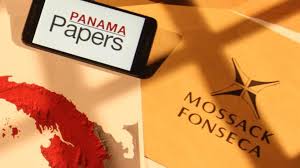In April this year, the leakage of 11.5 million documents from the Panama-based Mossack Fonseca law firm has brought into limelight, as how the ‘super rich’ across the world have stashed their wealth clandestinely in off-shore companies, in order to avoid paying taxes in their own countries. The leaks have exposed an underground industry led by major banks, financial institutions and legal firms that secretly manage the estate of many of the world’s richest, including heads of states, politicians, oligarchs, fraudsters, mafia cartels, drug smugglers and celebrities.
The documents now known as the Panama Papers were leaked to the German newspaper Suddeutsche Zeitung (SZ) which then shared them with the International Consortium of Investigative Journalists (ICIJ). The unravelling of these documents has been dubbed by Edward Snowden as “the biggest leak in the history of data journalism”.
These ‘rich and the mighty’ would try to influence the governments to alter the legislations, and can even silence the media to cover up their tainted work. If they can’t change the laws to benefit themselves in their homelands… they simply send their money elsewhere through shell holding companies. This transfer of wealth, much of it diverted from what should have been tax payments, is an open secret. Panama, the Cayman Islands, British Virgin Islands, Luxembourg and Switzerland are the known destinations of the ill-gotten money of the rich and the mighty.
Twelve national leaders are among 143 politicians, their families and close associates from around the world known to have been using offshore tax havens. The leaks have already resulted in one political casualty. Sigmundur Davio Gunnlaugsson, Prime Minister of Iceland, was forced to resign after revelations that he and his wife had used the services of Mossack Fonseca. British Prime Minister David Cameron, after days of stalling questions over the status of Blairmore, a fund established by his father in Panama, admitted that he gained financially but that he sold for a profit just before he assumed office in 2010.
Other political leaders in the Panama Papers net include Russian President Vladamir Putin, whose close friends and associates are linked to shell companies ‘manufactured’ by Mossack Fonseca, and Pakistan Prime Minister Nawaz Sharif, whose family, the papers reveal, profited by mortgaging six London properties through companies owned in the Virgin Islands. The revelations also link relatives of at least eight members the Chinese Communist Party leadership to tax havens, through Mossack Fonseca.
Among the celebrities mentioned by The Indian Express is Amitabh Bachchan, who is reported to have been made managing director of four companies in 1993 in the British Virgin Islands and in the Bahamas, both tax havens. Bachchan’s daughter-in-law, Aishwarya Rai, and her family members were also allegedly helped by Mossack Fonseca to establish a company in the Virgin Islands. P. Vaidyanathan Iyer, part of the Indian Express team investigating the Panama Papers, described Mossack Fonseca as a giant “factory” that churned out thousands of companies into which the haven-seekers could invest. “Fonseca was offering companies off the shelf to resident individuals,” he observed in the wake of the revelations.
A remarkable book published recently, The Hidden Wealth of Nations: The Scourge of Tax Havens by Gabriel Zucman (University of Chicago Press, 2015), throws some light on the widespread abuse of tax havens and their implications for social equity. “Tax havens with their financial opacity are one of the key driving forces behind rising wealth inequality,” says Thomas Piketty (author of Capital in the Twenty-first Century) in his Foreword to Zucman’s book. Piketty observes that ‘tax havens undermine a fundamental facet of modern democracies, which are grounded in a social contract that requires that everybody pays taxes on an equitable basis.’
The pertinent question in the Indian context is…whether the BJP government at the Centre would do anything spectacular to uncover the offshore assets of about 500 Indians as exposed by the Panama Papers? The answer could only be a big ‘NO’. Because, Narendra Modi, who strode his party into office in 2014 on the promise of bringing back the colossal “black money” did literally nothing till date. On the contrary, his government is giving more concessions to the foreign capital, in order to induce the corporate oligarchy to “make in India”. The “Mauritius route”, which was used for avoiding taxes by foreign capital that undertook investment in India, had been sought to be closed at one stage; but, under pressure from the multinationals, this idea was completely abandoned. The Modi government has not only continued with the “Mauritius route” but has even assured the corporate giants recently, that all retrospective taxes would be exempted. The “Make in India” campaign is not yielding any big investments at present. In this milieu, the more the “Make in India” campaign fails, the more concessions the Modi government will give to the corporates and multinationals in its desperation. Therefore, pushing the Panama Papers under the carpet is the most “natural” thing to happen. That is why; a concerted demand must be made by all the right-thinking people in the country that the probe into the matter should be entrusted to an independent investigative agency under the supervision of the Supreme Court.
Perfidy of the ‘Super Rich’
In April this year, the leakage of 11.5 million documents from the Panama-based Mossack Fonseca law firm has brought into limelight, as how the ‘super rich’ across the world have stashed their wealth clandestinely in off-shore companies, in order to avoid paying taxes in their own countries.


